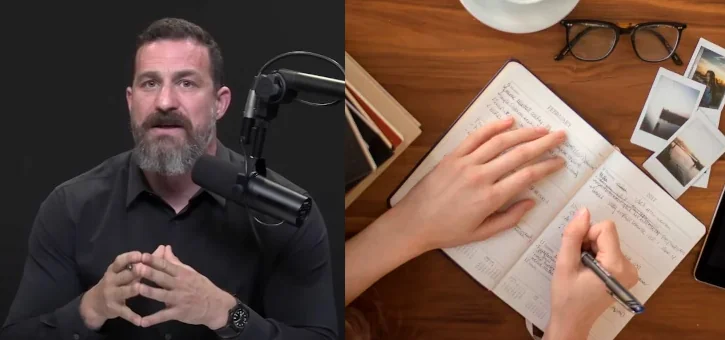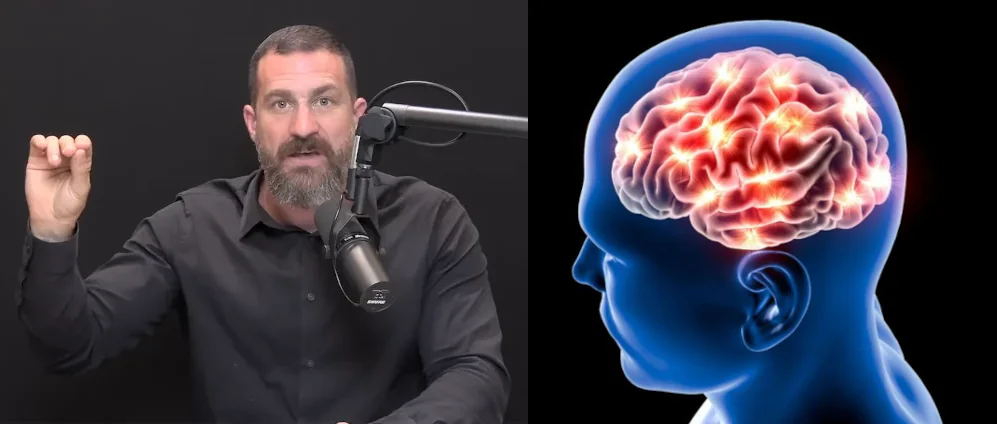Whilst Andrew Huberman hasn’t published a book yet (it’s in progress), he has recommended a number of them via his podcasts and Twitter.
This post gathers those book recommendations together in one place.
We start with the book he says “had the biggest impact on his thinking”…

Andrew Huberman Book Recommendations
The 5 Types of Wealth – Sahil Bloom (New Mention)
Recently on Huberman’s Instagram story he recommended this book, noting that is offers a comprehensive take on personal development.

In Sahil’s book The he covers these 5 types of wealth; time, social, physical, mental and financial.
Book links: Amazon | Goodreads
The Secret Pulse of Time
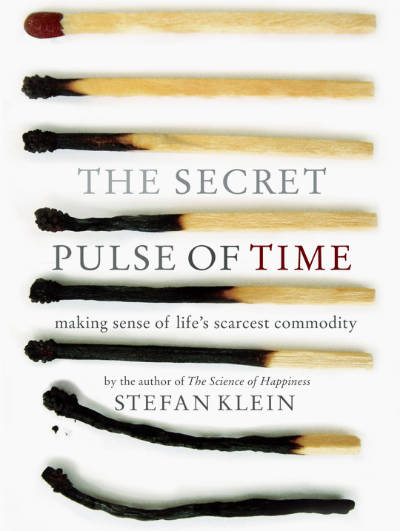
Andrew describes The Secret Pulse of Time as the book that had the greatest impact on his thinking.
It can be described as “operating instructions” for how we use time.
The author, Stefan Klein, helps us to understand things like:
- Why time flies when you are thoroughly engrossed in something
- Why minutes pass so slowly when you’re standing in waiting lines
- How to find more time to relax and unwind
- Why we often fail to make the best use of time
Given our time is finite, and no amount of money can recover lost time, then a book that can help us use our time more wisely seems very valuable!
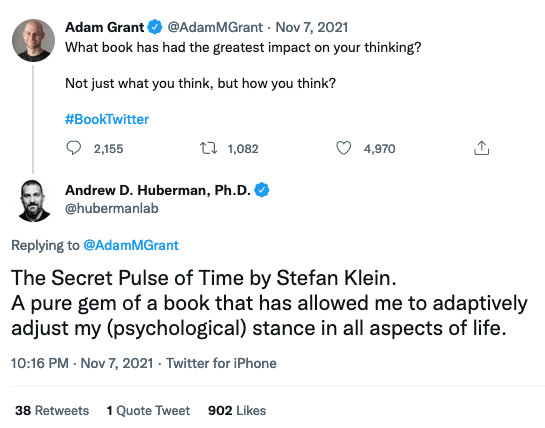
^ Twitter source
Book Links: Amazon | Goodreads
Mastery
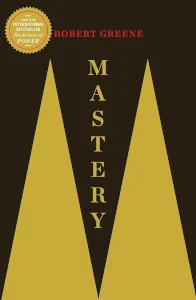
Andrew went as far as to say that Mastery transformed his entire life, and in many ways his podcast probably wouldn’t exist were it not for the book.
It embedded in him the idea that we all have a deeper purpose, and it explains how to go about finding that purpose.
He also said that it’s one of three books that he used to recommend to students on a course he taught at UCSD. These students were soon going to graduate, and he hoped the book would aid them in their future endeavors. The other two books he recommended are Longitude and Principles of Neurobiology which we discuss below.
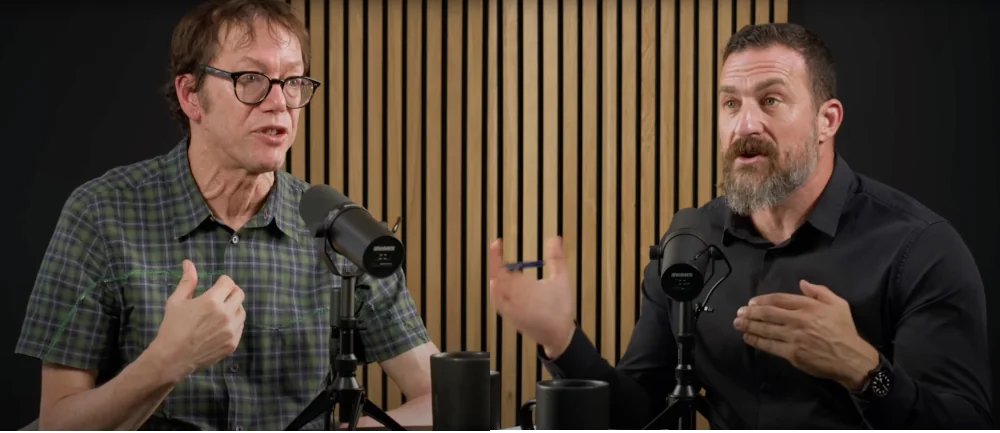
Interestingly, when interviewing the book’s author Robert Greeene, Robert mentioned a book that he’d found impactful, called Frames of Mind: The Theory of Multiple Intelligences. Hinting that understanding ones own particular “intelligence” can help on the road to finding their deeper purpose.
The Nature of the Beast

Author David Anderson is a neuroscientist who has pioneered work analyzing the emotions of animals.
In The Nature of the Beast he explains what studying animal brains can teach us about human behavior.
Providing insights into why isolation makes us more aggressive, how sex and violence connect, and whether there’s a link between aggression and mental illness.

^ Twitter source
Book Links: Amazon | Goodreads
Jaws: The Story of a Hidden Epidemic
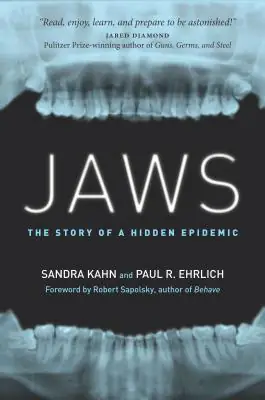
Jaws: The Story of a Hidden Epidemic highlights an oral health crisis of the modern day.
Citing biology, diet, and cultural influence, evidence shows that our jaws are getting smaller while our teeth are getting closer together and more crooked.
It turns out breathing through the mouth does more damage one would have though..
As Huberman tweets, “keep nasal breathing on the low-intensity cardio” because he knows how important it is.
Improper breathing may not sound like a huge deal, nothing orthodontics can’t fix, but data shows that while our breathing is negatively impacted, our facial structure and attractiveness are too.
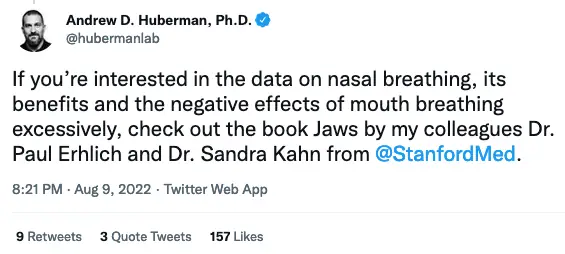
^ Twitter source
Book Links: Amazon | Goodreads
Breath

James Nestor traveled the world to research how improper breathing can harm the overall quality of health.
This research-packed book shows that proper breathing can stop snoring, asthma, autoimmune disease, improve athletic performance, and more!
Huberman emphasizes the benefits of nose-breathing in this video on Twitter.
According to Joe Rogan’s glowing review, the book has breathing exercises that can provide results within just a few weeks.

^ Twitter source
Book Links: Amazon | Goodreads
Trauma
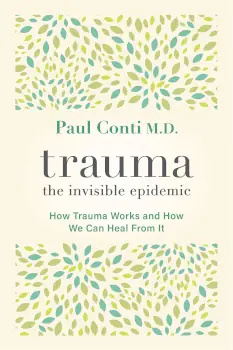
Paul Conti provides a straightforward explanation for trauma’s role in the “silent epidemic.”
He explains how to determine what trauma is, including the three different types. Conti criticizes the lack of trauma markers in psychology and psychiatry, which makes it hard to get to the root of the problem, and leaves professionals throwing around drugs instead to band-aid symptoms.
Conti’s book explains how trauma may affect someone, how to heal and move on from that trauma, and the potential role that psychedelics may play in the future of medicine.

^ Twitter source
Book Links: Amazon | Goodreads
Finding Ultra
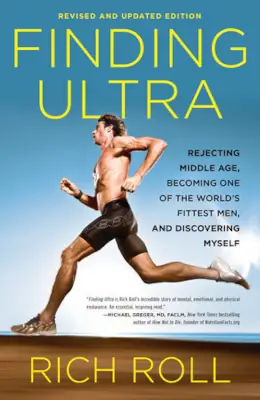
Rich Roll turned his life around at the age of 40. He went from 50 lbs overweight to an ultra-marathon runner through a lifestyle overhaul that included diet change, daily training, and a mindset shift.
He is an advocate of plant-based nutrition, which he discusses often on his podcast as well.
Rich talks about his experience with addiction and being overweight in his book. Although he does talk about running, he wants to be clear that it’s a book about transformation and that running was only part of his health journey.
Rich Roll describes his book as an inspiration for untapped potential.
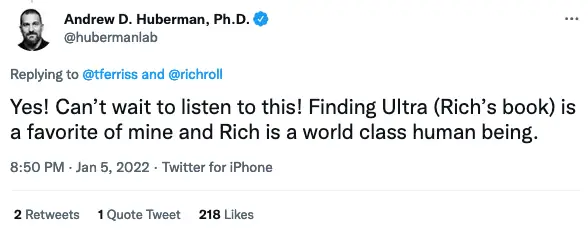
^ Twitter source
Book Links: Amazon | Goodreads
Principles of Neurobiology
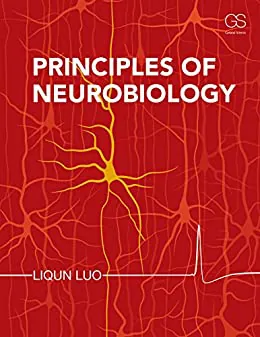
Naturally, there had to be a Neuroscience book recommendation from the Neuroscientist himself.
Technically, Principles of Neurobiology is a textbook. Huberman recommends it as a beginner’s book if you are interested in Neuroscience.
This book covers electrophysiology, molecular genetics, brain plasticity, and more, building upon the last subject to help the reader easily understand these complex topics.
This is one of the leading textbooks being taught on University campuses today for its comprehensive approach to the subject.
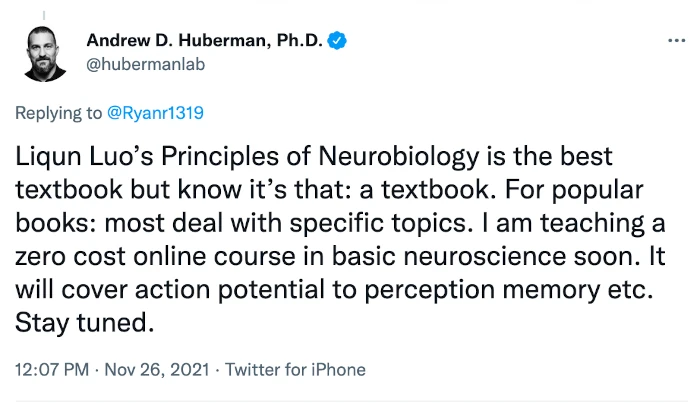
^ Twitter source
Book Links: Amazon | Goodreads
The Prince of Medicine
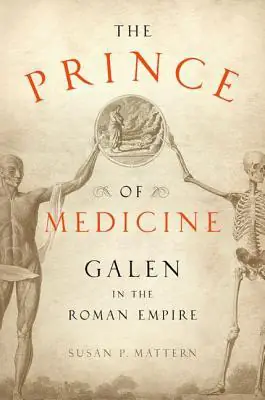
Galen was considered an extremely influential figure in Greek history, deemed a “polymath” (as many were at the time), for his ability to write about grammar, gout, eczema, and even ethics.
This novel showcases the history of medicine and a look into Galen’s personal life. Huberman tweets that it describes how we actually got to where we are today in modern medicine.
The Prince of Medicine depicts life in the Roman Empire while covering an outbreak of smallpox through which Galen succeeded.
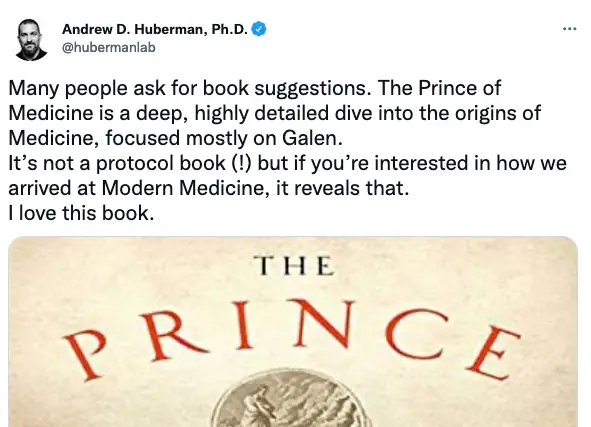
^ Twitter source
Book Links: Amazon | Goodreads
Altered Traits
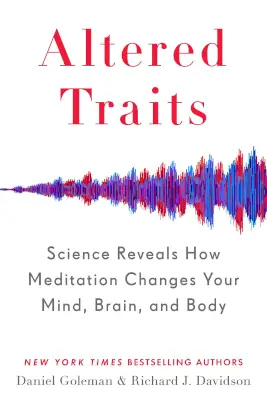
Altered Traits examines scientific evidence around meditation and the various claims surrounding its effects on the brain.
Goldman and Davidson are both esteemed Psychologists with hundreds of publications under their belts, including writing for the New York Times.
They have taken the research on meditation and created an exact science and formula for how and when to use it to benefit the most.
These scientists teach readers how to transform the brain.

^ Youtube source
Book Links: Amazon | Goodreads
The Four-Hour Body
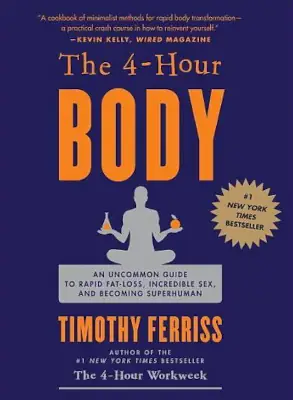
The Four Hour Body provides an à la carte menu of potential hacks to improve your body and mind.
From uncommon weight loss and health treatments, to tips on how to rapidly build muscle with minimal effort.
Some of the suggestions may seem out of reach (frequent 20-minute naps daily), but his point is to encourage everyone to find something they like and stick to it.
In the tweet below, Andrew highlights an idea that Tim had elucidated in the 4 hour body, about how making blood donations may improve your health and lifespan.
Part of the reason for this is that men and post-menopausal women often build up excess iron stores… which can be detrimental. Donating blood reduces them.
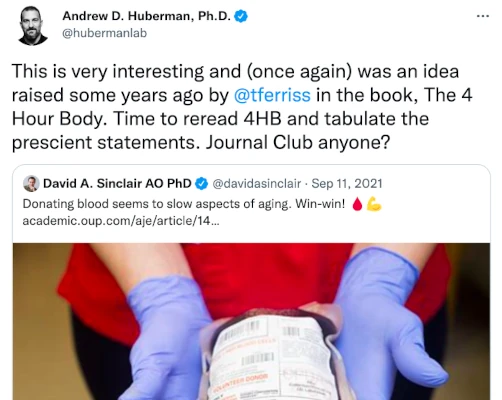
^ Twitter source
Book Links: Amazon | Goodreads
Dopamine Nation
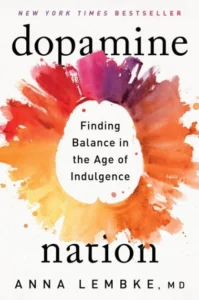
Chances are, you are holding your dopamine device in your hands right now. We are in a time where we are overly connected and dependent on our devices while simultaneously disconnected from ourselves, our community, and the real world.
The book touches on the reward system and the difference between pleasure and pain experiences.
Dopamine nation highlights the problem of the unlimited tap of digital dopamine through food, gambling, alcohol, shopping, drugs, social media, and more.
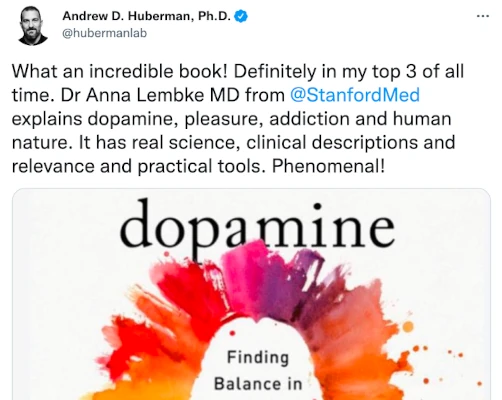
^ Twitter source
Book Links: Amazon | Goodreads
The 8th Day of Creation
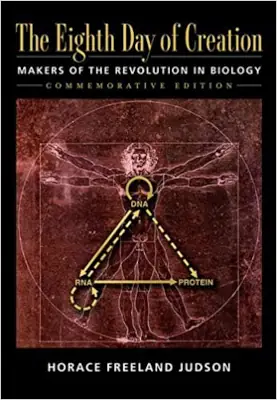
The 8th Day of Creation is the story of molecular biology’s birth and early development in the US, the UK, and France.
This book covers the discovery of DNA and the genetic code in a way that is accessible to readers without a scientific background.
If you enjoy reading about the history of science and the people involved through an interview-style narrative, this book is for you.
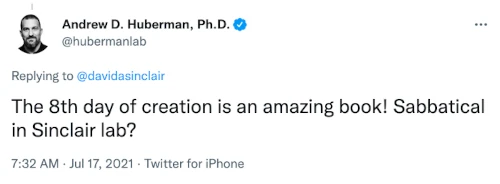
^ Twitter source
Book Links: Amazon | Goodreads
On The Move
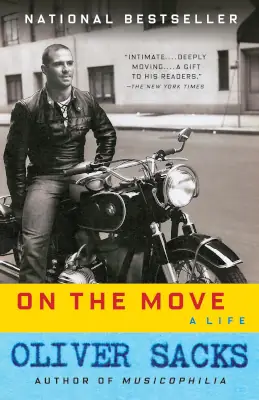
On The Move is a memoir by a man who packed a lot of living into life, Oliver Sacks.
Oliver Sacks was a neurologist in the 1960s, and this is the recount of his story from drug addiction in California to the discovery of a forgotten illness in New York.
Sacks writes about his passions, weight lifting, swimming, writing, and the influence that got him to where he was.
Huberman mentions on the podcast having just finished the book for the THIRD time. He says the autobiography is marvelous and highly recommends it to people.
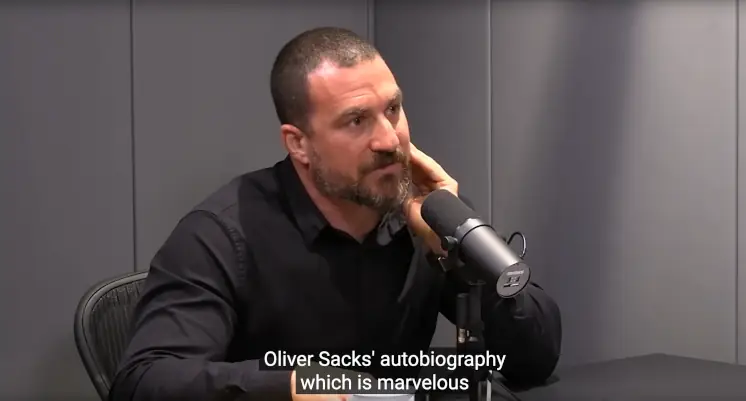
^ Youtube source
Book Links: Amazon | Goodreads
Projections
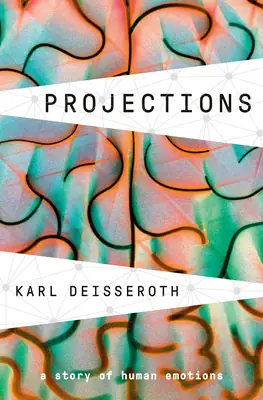
Karl Deisseroth is a Psychiatrist and Neuroscientist telling the story of the human mind through clinical studies.
Deisseroth discusses mental illness and empathy to describe how human emotions work in the brain. His book is inspirational for those who feel they are “broken,” as he tells the story of various people overcoming their mental illnesses.
Huberman says that the book “beautifully merges psychiatry, bioengineering, story, and prose.”
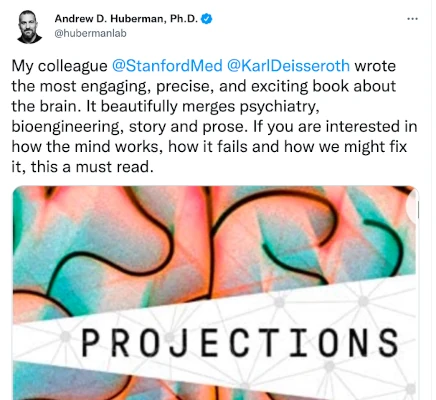
^ Twitter source
Book Links: Amazon | Goodreads
Deep Work
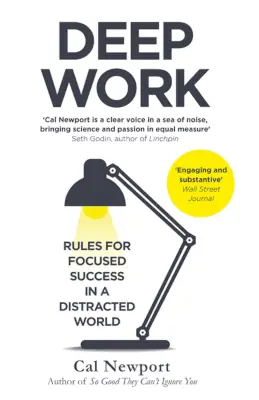
We live in a distracted world. How do you sit down and focus when your phone is going off, there are sirens going by, and your stomach just growled?
Data shows that four hours is the limit to how much productive deep work a human can do in one day, and Newport provides ways to work with this number to achieve maximum productivity.
Deep Work is a book that describes how to go deep into a cognitively demanding task and get things done. If you’ve ever wished that you could focus and achieve more, then this book has the actionable steps you can take.

^ Youtube source
Book Links: Amazon | Goodreads
An Introduction to Behavioral Endocrinology
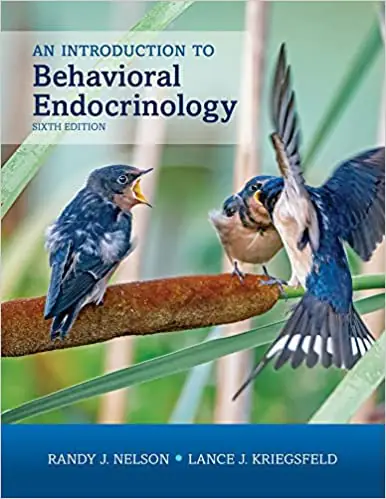
An Introduction to Behavioral Endocrinology is a historical description of the interactions between hormones, the brain, and behavior.
The textbook shows the impact of hormones on human behavior through input mechanisms, central processing mechanisms in the nervous system, and output mechanisms.
This book is accessible for people who do not have a background in biology.
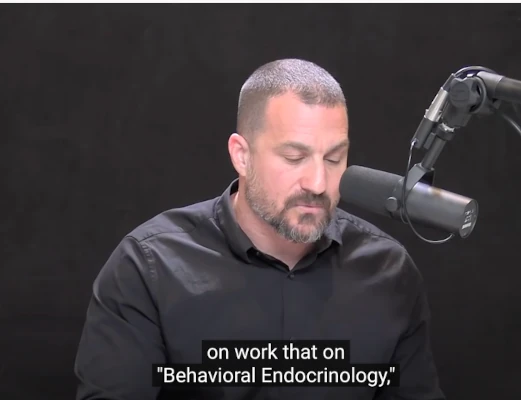
^ Youtube source
Book Links: Amazon | Goodreads
How Emotions Are Made
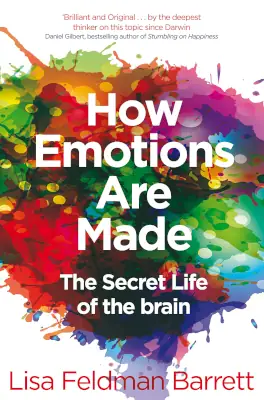
How Emotions Are Made is a scientifically sound book on the science of emotions, helping readers understand the how and why behind what they feel.
Lisa Feldman Barrett touches on concepts such as why emotions feel automatic and how emotions affect disease. This book claims that emotions are actually learned through culture and language rather than being innate.
The book is often criticized for ignoring sensory input and challenging the old emotion paradigm.
Book Links: Amazon | Goodreads
The Molecule of More
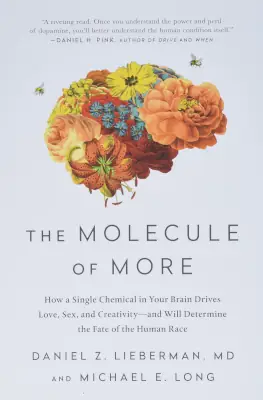
A second book on dopamine, The Molecule of More, describes our constant craving of actions that increase it.
As the front cover states, this single chemical drives love, sex, and creativity.
Examining the science between wanting and possessing something and the dopamine hit accompanying this novelty.
Book Links: Amazon | Goodreads
The Dream Drugstore
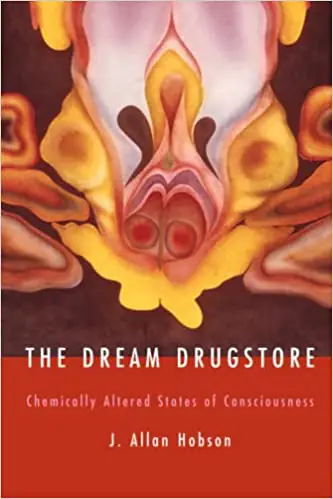
The Dream Drugstore is a deep dive into chemically altered states of consciousness.
In this Youtube video, Huberman says the book looks into drugs that can induce hallucinations and dreams in REM.
With these mind-altering drugs, Hobson discusses treatment for various mental health issues, including insomnia, anxiety, mood disorders, and schizophrenia. Hobson describes the mind as an “agent of change.”
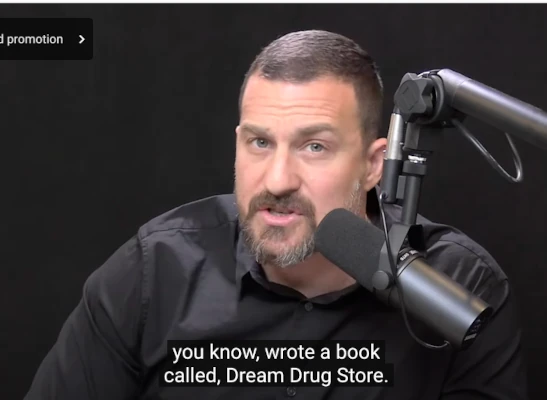
^ Youtube source
Book Links: Amazon | Goodreads
The Circadian Code
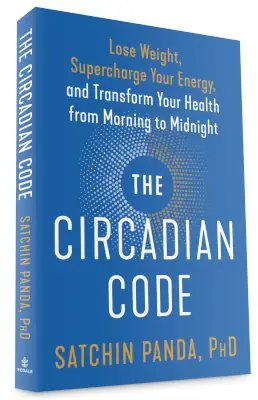
The Circadian Code is a book that emphasizes how four simple things determine the quality of your health.
- Going to bed at the right time
- Eating at the right time
- Physical activity throughout the day
- Exposure to light at the right time
By reading the book, you can discover the circadian theory of how your body’s internal clock functions. Huberman talks about using light to wake up earlier in this Youtube video.
Book Links: Amazon | Goodreads
Wherever You Go, There You Are
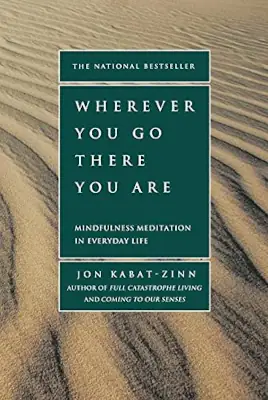
Wherever You Go, There You Are is a book on cultivating mindfulness and providing the reader with the tools to engage in formal meditation.
Jon Kabat-Zinn emphasizes that the grass isn’t always greener and that if you think it is, you will always be disappointed in life. He claims that the best way to find contentment is within ourselves, which can be done through meditative practice.
Andrew said (in his Rick Rubin interview) that he received the book when he was 14, and the “mountain visualization” meditation helped him through so many years of his life. You can find a narrated version of this visualization here.
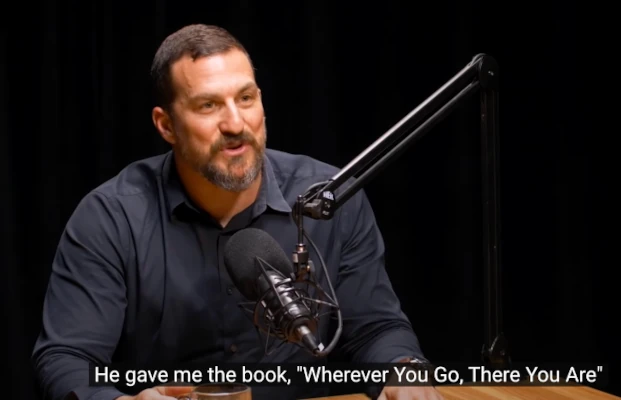
^ Youtube source
Book Links: Amazon | Goodreads
The Road to Character

In The Road to Character, author David Brooks introduces the idea of “résumé virtues” vs “eulogy virtues”.
Eulogy virtues exist at the core of our being and define our character.
Whereas résumé virtues relate more to outwardly recognized goals, such as career success and status.
David goes on to give examples of great thinkers and leaders, and how they built their characters.
Helping us to reflect on our own journey, and what role our character and eulogy virtues may play going forward.

^ Tweet source
Book Links: Amazon | Goodreads
Longitude
In response to a question about which non-fiction book emotionally moved him and permanently changed the way he sees the world, Andrew responded with 2 books:
- On The Move by Oliver Sacks (tweet) – discussed above
- Longitude – The true story of a lone genius who solved the greatest scientific problem of his time

^ Tweet source
The book, Longitude, is about a British self-taught clockmaker who took on the big scientific challenge of the 18th century.
At the time, airplanes did not exist, and international travel was done by sea. However, the ability to measure longitude (East/West travel across the globe) had not yet been discovered, leading to loss of ships and sailors, as they quite literally got lost at sea.
The approach up until this point for measuring longitude had been to try and use the stars, but it wasn’t working out. So this clock maker thought to attempt a mechanical solution, and the book covers his journey.
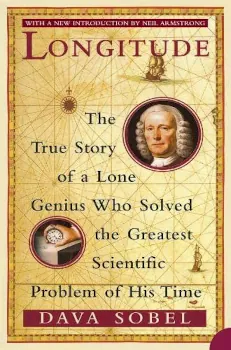
Book Links: Amazon | Goodreads
Yoga Nidra

^ Image source
Whilst Andrew hasn’t, that I can find, specifically praised the book “Yoga Nidra”, he did feature it in an Instagram post (above) of the books he enjoyed reading in 2018.
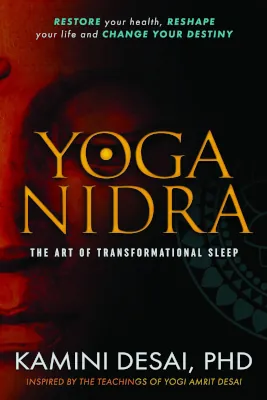
Book links: Amazon | Goodreads
Given how much Andrew mentions Yoga Nidra (the practice, rather than the book), I thought the book was worth a mention.
For the unfamiliar, Yoga Nidra is “a restful state of non-doing”. This means lying down for 15-30 minutes listening to a guided meditation.
Having looked through this book, it’s largely theoretical.
If you just want to start with Yoga Nidra, you can instead jump to these guided meditations that Andrew has previously recommended (source):
- 10 minute guided Yoga Nidra – YouTube link
- 35 minute guided Yoga Nidra – YouTube link
For something between 10 and 35 minutes, I found this 20-minute one good:
- 20 minute guided Yoga Nidra – YouTube link
There are lots of them on YouTube, so have an explore!
For completeness, the other books from Andrew’s IG post above (that we haven’t already discussed) are:
- The Rational Optimist by Matt Ridley – Amazon | Goodreads
- Fearless by Eric Blehm – Amazon | Goodreads
- Go Wild by John Ratey – Amazon | Goodreads
Outlive
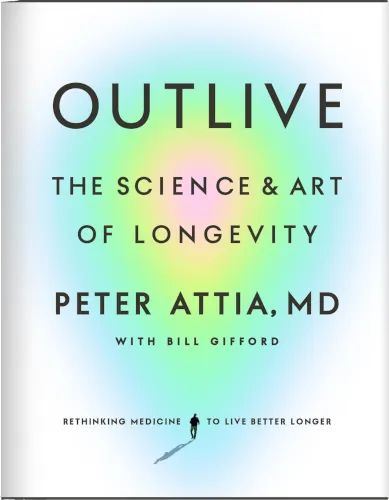
Outlive is a book by doctor Peter Attia.
Peter currently runs a bespoke consultancy for high-net-worth individuals, guiding them to live longer and healthier.
Building on the lessons from his practice, and his podcast The Drive, he uses this book to lay out his framework for longevity, and open it up to a wider audience.
Andrew received an advance copy and said on Twitter that it may become the “go-to guide” for health and longevity.

Book links: Amazon | Goodreads
Can Love Last?
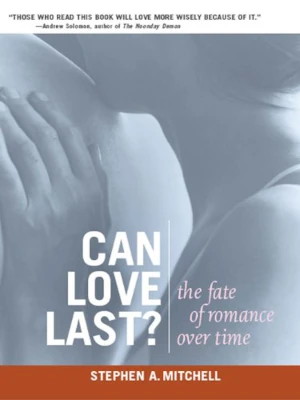
In Andrew’s 2022 interview on Lex Fridman he mentions with enthusiasm a book called “Can Love Last? The Fate of Romance over Time” (timestamp).

Frankly, I didn’t fully understand his explanation of the book. However, after reading more around it, it seems to hinge on idea that romance doesn’t necessarily diminish in long-term relationships… it just becomes increasingly risky.
To quote Goodreads: “Mitchell shows that love can endure, if only we become aware of our self-destructive efforts to protect ourselves from its risks”.
Book links: Amazon | Goodreads
Before you go…
That’s all Andrew’s top book recommendations for now. You may also enjoy reading…
- Andrew Huberman’s Diet – What and when he eats – the formula that works for him
- Andrew Huberman’s Supplement List – discussing the top supplements Andrew has discussed on his podcast
- Andrew Huberman’s Sleep Supplements – focusing on his supplements to aid sleep onset and sleep quality

